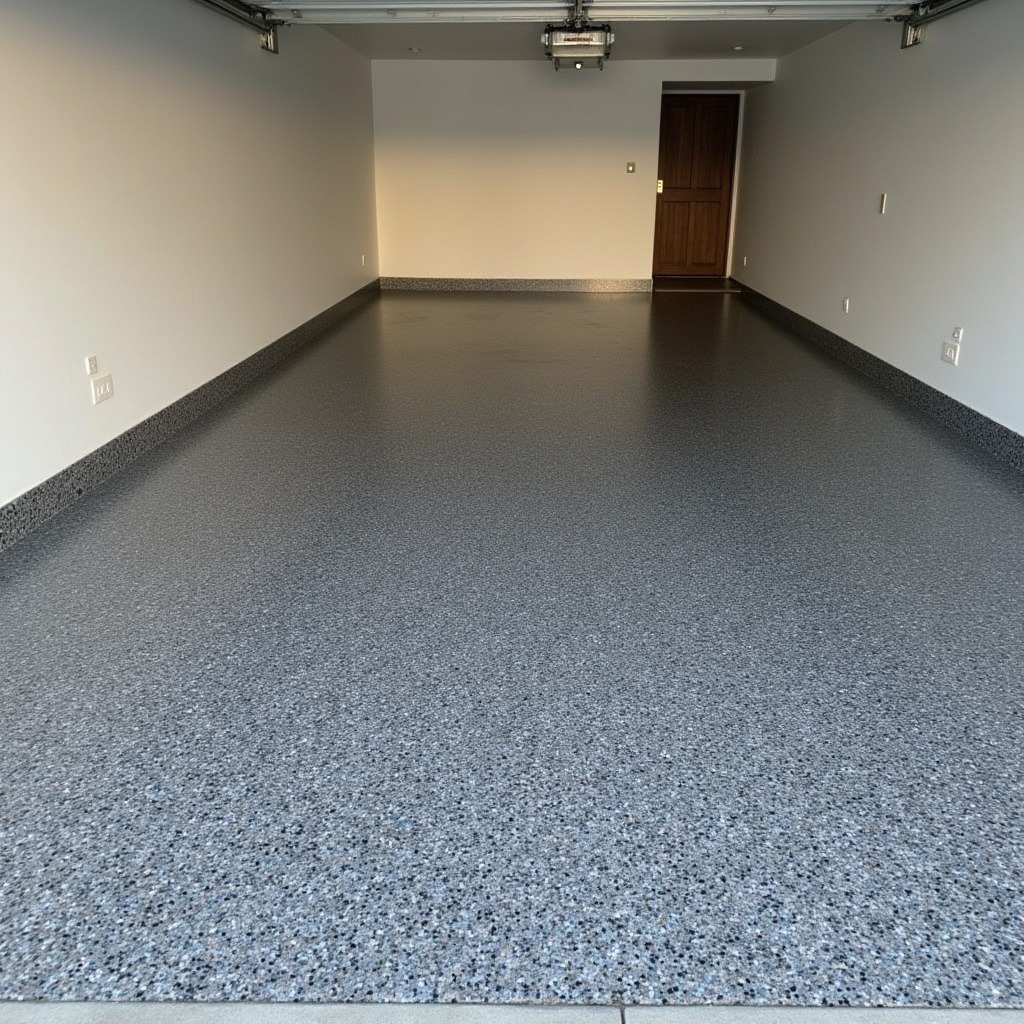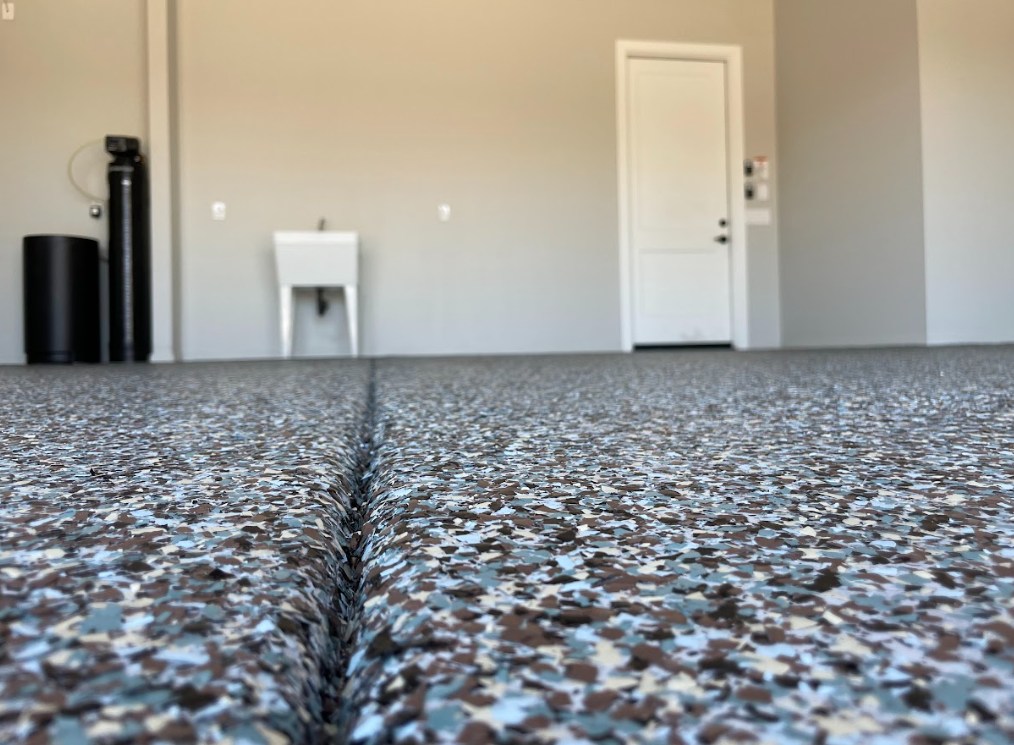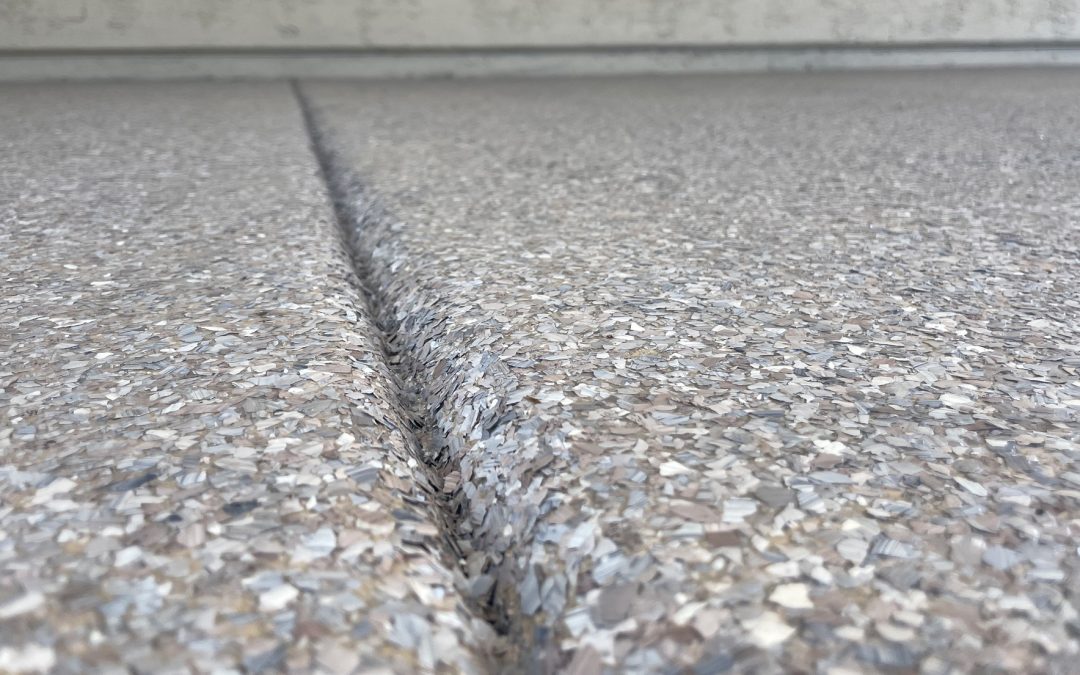Table of Contents
- Understanding Garage Floor Coating
- Epoxy Floor Coating
- Polyurea and Polyaspartic Coatings
- Why CycloSpartic™ Coating Is the Next Evolution
- Best Garage Floor Coating Options
- Garage Floor Protection Options
- Maintenance and Care for Garage Floors
- Picking the Best Garage Floor Coating
Understanding Garage Floor Coating
What is Garage Floor Coating?
Garage floor coating is a protective layer applied to a floor surface, usually a concrete floor in a garage, to enhance its durability and appearance. The coating acts as a sealer, protecting the concrete floor from moisture, stains, abrasion, and hot tire pickup. Applying a garage floor coating is a great way of protecting your garage and extending the life of your concrete.
Benefits of Garage Floor Coating
The benefits of a garage floor coating are numerous. A durable floor coating, like epoxy coating, can resist chemicals, oil spills, and heavy traffic, ensuring your garage floor is protected from damage. Additionally, floor coatings enhance the floor’s surface with a professional, finished look, available in various decorative options like flake, chip, and metallic finishes. Choosing the best coatings is a win-win.
Types of Garage Floor Coatings
There are several types of garage floor coatings available, each with unique properties. Epoxy floor coatings are popular for their durability and chemical resistance. Polyurea garage floor coating and polyaspartic coating offer fast curing times and excellent UV resistance. CycloSpartic™ coatings by Garage Force are the strongest and most durable floor coatings on the market.
Garage floor paint and concrete sealer provide more affordable options, although they may not offer the same level of durability or lifetime warranty as other floor coating systems.

Epoxy Floor Coating
What is Epoxy Floor Coating?
Epoxy floor coating is a two-part system consisting of epoxy resin and a hardener, which, when mixed, create a rigid and durable floor covering. This epoxy coating is applied to the concrete floor to create a seamless and resistant barrier. Epoxy floor coating is ideal for concrete garage floors, as it bonds strongly to the substrate, providing a long-lasting and attractive finished floor.
Advantages of Epoxy for Garage Floors
The advantages of using epoxy for garage floors are significant. Garage floor epoxy is highly resistant to chemicals, abrasions, and impacts, making it ideal for withstanding the rigors of garage environments. Epoxy systems can also be customized with decorative flakes, metallic pigments, or solid colors to enhance the garage’s appearance. It also offers a smooth, easy-to-clean floor surface.
Application Process for Epoxy Floor Coating
The application process for epoxy floor coating involves preparing the concrete floor by cleaning and repairing any cracks or damage. A primer is then applied to ensure proper adhesion, followed by the epoxy coating. A top coat of clear polyurea or urethane can be added for extra protection and a glossy finish. Proper preparation and application are crucial for achieving a durable and long-lasting epoxy floor.
Polyurea and Polyaspartic Coatings
What are Polyurea and Polyaspartic Coatings?
Polyurea and polyaspartic coatings represent advanced solutions in the realm of floor coatings, offering unique advantages over traditional epoxy floor systems. Polyurea garage floor coating is known for its rapid curing time and exceptional durability, making it a popular choice for high-traffic areas needing a quick turnaround. Polyaspartic coating, a type of polyurea, provides excellent UV resistance and flexibility. Both concrete coatings can be used as a floor surface. Floor paints can resist UV exposure.
Benefits of Polyurea Garage Floor Coating
The benefits of polyurea garage floor coating are numerous, making it a preferred option for many garage environments. Polyurea coatings cure quickly, allowing for minimal downtime and fast return to service. They offer superior abrasion resistance, protecting the concrete floor from wear and tear caused by heavy traffic and equipment. Furthermore, polyurea coatings exhibit excellent chemical resistance, safeguarding the floor against spills and stains. Polyurea garage floor coating is a durable floor surface.
Comparing Polyaspartic Coating to Epoxy
When comparing polyaspartic coating to epoxy floor coating, several key differences emerge. Polyaspartic coatings generally offer faster curing times and better UV resistance than epoxy, preventing yellowing and fading over time. While epoxy floor excels in terms of affordability, polyaspartic garage floor coatings provide enhanced durability and flexibility, making them suitable for environments with temperature fluctuations or high levels of wear and tear. Many prefer polyaspartic coating as a top coat.
Why CycloSpartic™ Coating Is the Next Evolution in Garage Flooring
While polyurea and polyaspartic coatings have transformed the garage floor industry, CycloSpartic™ by Garage Force represents a major leap forward. Engineered with proprietary technology, CycloSpartic™ combines the best properties of both materials—fast cure time, superior adhesion, and UV stability—while improving on key performance metrics.
CycloSpartic™ is 20x stronger than epoxy and 4x stronger than traditional polyurea, offering unmatched impact resistance and long-term durability. It cures fully in under 24 hours—even in extreme cold—and resists fading, yellowing, and hot tire pickup far better than most polyaspartic systems on the market. This makes it the perfect solution for homeowners looking for both beauty and toughness in their garage.
Additionally, CycloSpartic™ coatings are installed through a 10-step proprietary process that ensures maximum bond to the concrete substrate. Combined with Garage Force’s lifetime residential warranty and innovative VeriFloor™ QR chip system, homeowners gain transparency and peace of mind knowing exactly what was installed—and that it’s built to last.
If you’re comparing polyurea, polyaspartic, and epoxy floor systems, CycloSpartic™ stands in a class of its own, delivering industrial-grade performance with stunning, customizable finishes designed to elevate any space.

Best Garage Floor Coating Options
Top Choices for Garage Floor Coatings
Choosing the top garage floor coating options requires careful consideration of various factors such as durability, aesthetics, and budget. Epoxy floor coatings remain a popular choice for their affordability and good overall performance. Polyurea and polyaspartic coatings offer superior durability and UV resistance, while concrete sealer and garage floor paint provide more cost-effective solutions for lighter use. However, if you are looking for the highest quality floor coating, CycloSpartic™ is the most solid option. Different floor coatings exist, and finding the right one is essential.
Best and Worst Garage Floor Coatings
Determining the best and worst garage floor coatings involves assessing their performance in different conditions. Epoxy and polyaspartic systems are often considered among the best for their durability and chemical resistance. On the other hand, CycloSpartic™ floor coatings are scientifically proven to have the highest durability and best adhesion out of any coating. Garage floor paint and some water-based concrete sealers may be among the worst, as they offer limited protection and durability compared to other floor coating options. The best garage floor ensures longevity for the concrete garage. Garage floor coatings have different durability.
Factors to Consider When Choosing a Garage Floor Coating
Several factors should be considered when choosing a garage floor coating to ensure you select the best option for your needs. The level of floor traffic, potential exposure to chemicals or moisture, desired aesthetic, and budget constraints all play a significant role. Assess the preparation requirements for each coating type and consider hiring a professional to guarantee proper application and a long-lasting finished floor. Evaluate the different decorative options like flake, chip and metallic systems.
Garage Floor Protection Options
Understanding Garage Floor Paint
Garage floor paint is a single-component coating designed to protect your floor from minor stains and abrasion. It’s typically an acrylic latex or oil-based paint formulated to adhere to concrete floor surfaces. While garage floor paint offers an affordable and easy-to-apply solution, it generally doesn’t provide the same level of durability or chemical resistance as epoxy floor coating or polyurea garage floor coating. This floor paint can act as a concrete sealer.
Using Floor Sealers for Added Protection
Floor sealers penetrate the concrete floor to provide a protective barrier against moisture, stains, and dust. Concrete sealer comes in various formulations, including acrylic, latex, and siloxane-based sealers. While sealers can enhance the floor’s resistance to stains and moisture, they typically don’t offer the same level of abrasion resistance as epoxy or polyaspartic coating. Select a sealer that’s appropriate for your concrete garage and intended use, and also consider a garage floor protected from moisture.
Exploring Garage Flooring Alternatives
Beyond coatings, various garage flooring alternatives offer unique benefits. Garage floor tiles, available in interlocking PVC or rubber, provide a durable and comfortable floor surface that’s easy to install. Roll-out garage floor coverings offer a seamless and water-resistant surface, ideal for covering large areas quickly. Consider these alternatives when coatings aren’t suitable. These alternatives will protect your floor from hot tire and other damage, creating a durable floor surface.
Maintenance and Care for Garage Floors
Regular Maintenance Tips
Regular maintenance is crucial for prolonging the life of your garage floor covering. Sweep or vacuum the floor regularly to remove dirt and debris, preventing abrasion and scratches. Promptly clean up any spills or stains, especially oil or chemicals, to prevent them from penetrating the coating or concrete floor. Consider using mats or pads under heavy equipment to further protect your floor from impacts and abrasion. These measures ensure your garage floor is protected.
How to Repair Damaged Garage Floor Coatings
Repairing damaged garage floor coatings promptly can prevent further deterioration. For repair of scratches, chips, or other damage, it is best to hire a floor coating contractor who will know the best way to repair your floor for long-term success. Addressing damage early on will help maintain the integrity and appearance of your garage floor epoxy for longer. Many times these top coats are clear polyurea, polyaspartic, or CycloSpartic.
Cleaning Solutions for Garage Floors
Choosing the right cleaning solutions is essential for maintaining your garage floor’s surface without causing damage. Avoid harsh chemicals or abrasive cleaners that can dull or damage the coating. Instead, opt for mild detergents or specialized floor cleaning solutions designed for epoxy, polyurea, or concrete sealer floors. Always follow the manufacturer’s instructions and test the solution in an inconspicuous area first. Proper cleaning helps maintain the appearance and longevity of your best coatings.
Picking the Best Garage Floor Coating
When it comes down to it, picking the best floor coating for your garage, basement, patio, or other surface is a matter of preference and desire for a long-term solution. If you are looking for the longest lasting, strongest solution, homeowners prefer CycloSpartic™ coatings. On the other hand, if you want the cheapest solution that has a higher chance of failure and a shorter lifetime, epoxy may be your preferred coating.
To get a floor coating installed, we recommend contacting your local Garage Force floor coating installer near you for the best service and product around.

